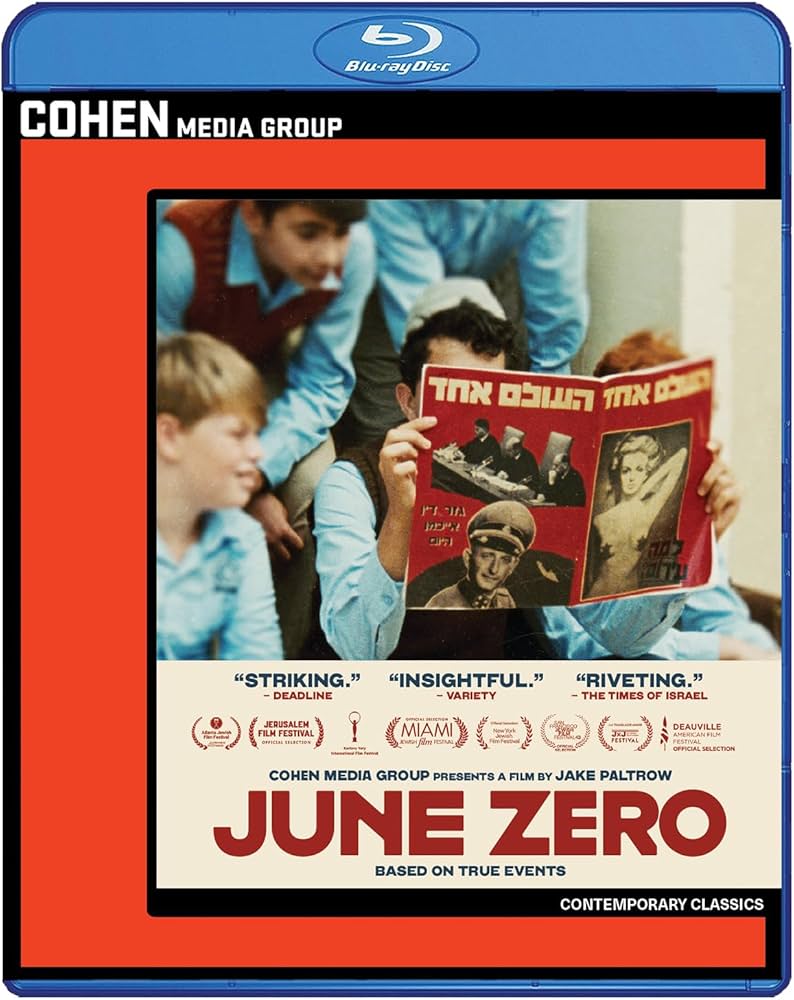For those not aware Adolf Eichmann was a high-ranking member of the Nazi party and the SS that was instrumental in organizing the Holocaust and in particular the concentration camps that Jews were kept in during World War II. In 1960, Eichmann was captured by Israel’s Mossad agency, put on trial and eventually executed in 1962. June Zero is essentially a tapestry of intersecting stories taking place during Eichmann’s trial following several people whose lives have been impacted by Eichmann in one way or another. One story involves a troubled boy named David who becomes apprentice to a metal factory worker charged with building a crematorium to dispose of the body of Eichmann after he is executed. We also follow a Jewish prison guard who is charged with the unenviable task of protecting Eichmann during his trial, so he lives to see his execution. The third story follows a policeman who survived the Holocaust. Through these stories and the seemingly banal tasks associated with carrying out such a momentous execution (still to date the only person sentenced to death in Israel’s history) we see a nation trying to heal and move on from such an terrible atrocity.
June Zero is a film as conflicted with itself as the people in the film are conflicted with the subject. It is essentially segmented into three perspectives: The Outsider, The Survivor and The Stoic. David represents The Outsider. He is an Arab boy who is faced with some of the same bigotry and hate for being of a different race that the Jewish people faced during the Holocaust. The hypocrisy of the Israelis in pigeonholing him and treating him as “other” is obvious. This gives David a unique perspective to relate to how Jews during the Holocaust were treated as lesser people. The Stoic is represented by Haim, a prison guard specifically chosen because neither he nor anyone in his family was involved in the Holocaust. This distance should in theory allow him to dispassionately protect Eichmann without a personal vendetta to contend with. A scene of Eichmann getting a haircut is a particular point of tension. What’s to keep that blade from just slipping down to his neck? The Survivor is represented by Micha, an officer who also works as a tour guide in Poland. This is perhaps the most incongruous section of the film as it has no immediate connection to Eichmann’s trial specifically and instead seems to exist to represent someone who lived through the Holocaust reflect on and confront their past and how it has affected them. The section with the guard, while introducing some interesting context and suspenseful sequences, also feels a little unnecessary and less focused since we get the perspective of the more dispassionate worker from the factory owner building the crematorium as well. One very canny decision the film makes is to never actually picture Eichmann himself at any point. Eichmann is the person attributed with the “banality of evil” comment that invariably arises in discussions of Nazi personalities. What better way to express this banality than by showing the daily tasks required to carry out his execution, thus robbing Eichmann himself of any agency that could potentially make him into something more interesting? Some of the clunky structure of the film must fall on the shoulders of Jake Paltrow (yes, the brother of Gwyneth) who both co-wrote and directed the film. I feel like he had all these stories and all these different perspectives he wanted to express but wasn’t quite able to figure out how to coalesce them all entirely into a coherent whole. Despite it’s flaws, June Zero is very well-acted, and the core story of David’s internal conflict is inherently compelling.
Cohen’s transfer of June Zero looks very nice. The color palette of the film has a very soft and natural look, and the image quality is clear and clean with a nice grain balance and well-calibrated black levels. The audio comes in both 2.0 stereo and 5.1 surround and both are perfectly adequate. This isn’t a film with a particularly active soundtrack, so the 5.1 while nice primarily is there for added immersion. The disc contains absolutely no extras whatsoever which is unfortunate.
June Zero is a fascinating, if flawed, film depicting a pivotal event in the history of Israel that showcases how the average person was affected by Eichmann’s trial and what it meant for the individual, a perspective that often gets lost when trying to think of the Holocaust at a macro level. Cohen has given us a disc with very good technical specs but unfortunately didn’t include any extras to help provide more context for the film. I think for people who don’t follow Israeli history, this film in particular could have benefitted from a historical documentary on Eichmann giving an overview of why his trial was such a significant event. Despite that, this film is worth watching for the nuanced performances and the important perspectives it brings in showing the banality of evil.

